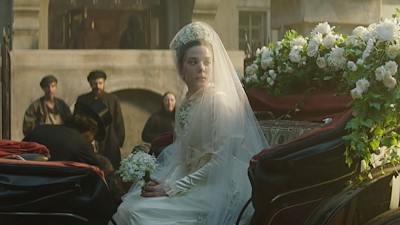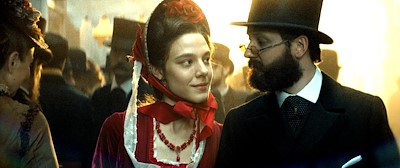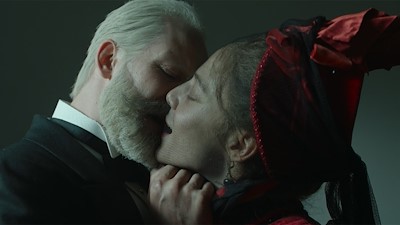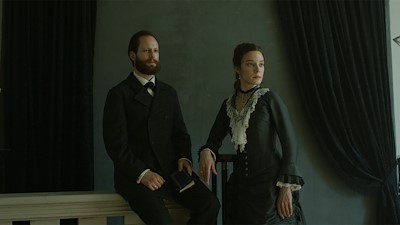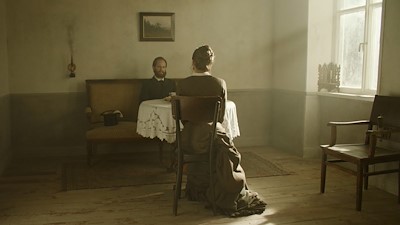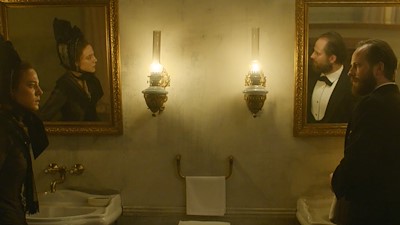Tchaikovsky’s Wife
Kirill Serebrennikov, Russian Federation, 2022o
Antonina Miliukova is a beautiful and bright young woman, born in the aristocracy of 19th century Russia. She could have anything she'd want, and yet her only obsession is to marry the composer Pyotr Tchaikovsky, with whom she falls in love from the very moment she hears his music. The composer finally accepts this union, primarily to counteract the persistent rumors about his homosexuality. Soon, however, he blames Antonina for his own misfortune and shows her his contempt.
Antonina Miliukova, who comes from an impoverished family of landed gentry, falls in love with the highly talented composer Peter Ilyich Tchaikovsky, who is also not bathing in wealth. "Falling in love" is probably the wrong word: she idolises him and garnishes her first declaration of love with a suicide threat if he does not want to marry her. In order to stop (true) rumours of his homosexuality and hoping for a small dowry, the composer agrees, only to ignore and mistreat his token wife from then on. Theatre and film director Kirill Serebrennikov (Leto and Petrov's Flu) stages the story as a sinister, grimy and claustrophobic costume drama, often lit only by the light of a candle or paraffin sparkle. This cinematic vocabulary suits both the gloomy existence of Miliukova, who, despite rejection, clings to her husband with almost lustful masochism like a dog to a bone, but also the portrait of late 19th-century Moscow society, made up of abject poverty or then whimsical, self-centred petty nobility and upper middle classes. Serebrennikov thus succeeds in creating an extraordinary and trenchant portrait of mores.
Till BrockmannGalleryo
